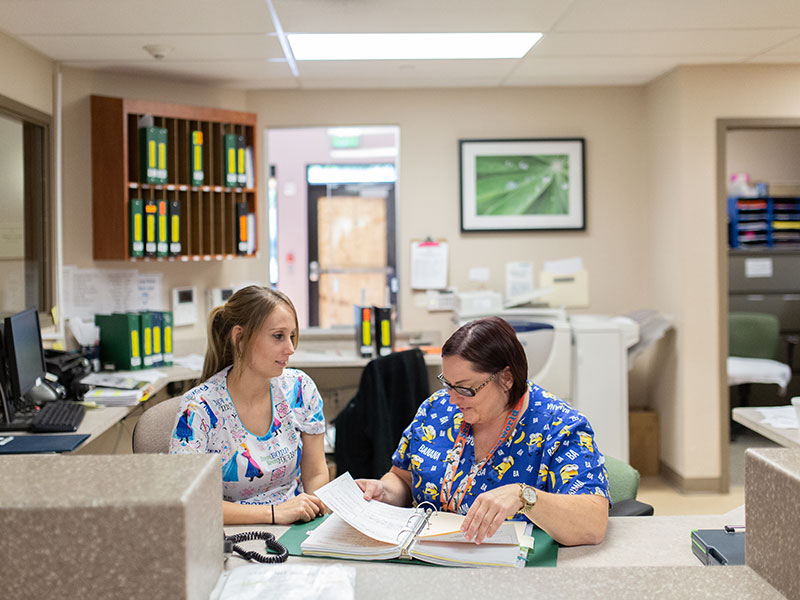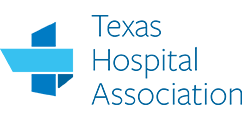Cedar Crest Hospital & Residential Treatment Center helps individuals who are struggling with painkiller addiction find long-term recovery. Located in Belton, TX, Cedar Crest offers expert care for painkiller addiction treatment.
Learn More About Prescription Painkiller Addiction Treatment
Learn more about prescription painkiller addiction treatment at Cedar Crest Hospital in Belton, TX
Given the widespread opioid abuse problem seen throughout the United States in recent years, many wonder about the source of this deadly problem. And sadly, opioid addiction often starts with a legal prescription from one’s doctor.
Drugs like Oxycodone and Vicodin are prescription painkillers that, when used properly, can be beneficial to healing when a person is suffering from moderate to severe pain. But given that they are still opioids, they carry with them the potential for abuse when used outside of medically prescribed guidelines.
When a person abuses prescription painkillers, he or she will develop a tolerance to these substances. This means that he or she will require more of the drug and in more frequent doses in order to achieve the desire effects. As this cycle continues and one’s addictive behaviors become further embedded, it will be all the more difficult for a person to cease his or her prescription painkiller use without professional help.
The staff at Cedar Crest Hospital & Residential Treatment Center understands the many ways that an addiction to prescription painkillers affects a person’s mind, body, and spirit. Our comprehensive, individualized programming is designed to address this specific type of chemical dependence, and with our help, you or a loved one can defeat addiction once and for all.
How to Help a Loved One
Helping a loved one get treatment for prescription painkiller addiction
When someone you care about develops an addiction to prescription painkillers, it may be difficult to know what to do to help him or her. But your support is important, and as you prepare to encourage your loved one to seek treatment, consider the following:
- Learn about prescription painkillers and the way these opioids impact the mind and body. By gaining an understanding of the addictive properties these drugs possess, you will be better acquainted with the challenges your loved one is facing.
- Explore treatment centers that offer programming designed specifically for individuals who struggle with prescription painkiller dependence. Hone in on options that would seem like a good fit for your loved one.
- Throughout the conversation, maintain a tone of care and consideration, keeping your own frustrations out of the scope of what is discussed and focusing on the needs of your loved one.
Throughout this time, it is imperative that you take stock of your own wellbeing, making sure to take care of your own needs. Stress takes its toll on the mind and the body, and you will need strength and fortitude to support your loved one during this process.
Why Consider Treatment
Why consider treatment for prescription painkiller addiction at Cedar Crest Hospital & Residential Treatment Center in Belton, TX
Left untreated, an addiction to prescription painkillers will continue to cause a myriad of damaging effects to the mind and body. A progressive illness, prescription painkiller use disorder will worsen over time, meaning that the affected individual will be unable to function to potential, face job loss, cause fractures in meaningful relationships, experience financial difficulty, and more.
But with the proper treatment, these damages can be reversed, and a person can leave an addiction to prescription painkillers in the past. By choosing to engage with a residential treatment program, an individual can take a break from the pressures of life and the temptation to use, and instead, can strictly focus on recovery. With access to a team of experienced addictions experts, men and women who choose to heal at Cedar Crest will be afforded a plan of care that will help them meet their goals for sustained sobriety, and achieve a vibrant, healthy life once more.
Our Philosophy
Cedar Crest Hospital & Residential Treatment Center philosophy and treatment benefits
For over 30 years, Cedar Crest Hospital & Residential Treatment Center has provided high-quality, innovative care for children, teens, adults, and older adults struggling with substance abuse and mental health problems. Our sprawling campus is the ideal retreat from the cares of the daily world and allows our clients to work through their challenges in a safe, supportive environment. We strive to be a beacon of light for our community and we are available 24 hours a day, 7 days a week.
Types of Treatment
Types of prescription painkiller addiction treatment offered at Cedar Crest Hospital & Residential Treatment Center in Belton, TX
When you come to us for help battling a prescription painkiller addiction, you will first undergo a series of evaluations that will best allow us to determine your needs. Our medical evaluation will help us to learn how dependent you are upon prescription painkillers and if you are suffering from any health concerns related to your prescription painkiller abuse. The psychiatric evaluation will help us to determine if you have any co-occurring mental health disorders and begin to treat them as we work through your addiction and recovery. We will sit down with the results of these evaluations and work with you to create an individualized treatment plan that meets all of your needs.
Medication may be used at the beginning of your stay with us in order to control some of the unpleasant side effects of withdrawal and may be tapered down as you learn more adaptive ways of coping with cravings. Other times, people are prescribed medication to help control the symptoms of co-occurring mental health disorders such as depression or anxiety. All medication will be closely monitored and adjusted as needed.
Individual therapy is used to help you better understand the reasons behind your addiction and ways to correct the damage a prescription painkiller has done to your life. We will use cognitive-behavioral therapy to help you best understand the ways that negative thoughts can impact behaviors, leading to bad decisions.
Group therapy: As we model our addiction program around the 12-Step addiction recovery model, we believe firmly in the importance of group therapy. Groups will allow you to meet and connect with other people who are struggling with addiction. We will hold groups to help you process your emotions and learn more about successful recovery from addiction.
Family therapy is a very important part of recovery from substance abuse, as it will allow you to work through some of the challenges that addiction has caused your family. We will work to rebuild family relationships so that you will have a proper support system when you complete your stay in our rehab. Our compassionate staff will educate your loved ones about addiction, recovery, and ways that they can assist in your healing.
In addition to standard therapies we use to treat addiction, we also offer a variety of experiential methods designed to complement our traditional approaches. These may include:
- Weekly A.A. and N.A. meetings on campus
- Yoga
- Art therapy
- Music therapy
- Numerous walking trails
- Swimming pool
- Recreational therapy
- Ropes course
Continuing Care
Continuing care and levels of treatment for prescription painkiller addiction
Cedar Crest Hospital & Residential Treatment Center is proud to offer a number of treatment options designed to help all who come to us struggling with addiction. We strive to help each client who comes to us for help long after they leave our doors – our care will not stop upon discharge – we are always available 24/7 to offer guidance. When you no longer require the structure of our inpatient program, you and your loved ones will sit down to discuss your aftercare options. Our social worker will provide you with information about local support services, help you cope with the transition back into your home environment, and create continued treatment goals to ensure continuity of treatment.
Some people step down from our intensive inpatient program into a structured outpatient program like an intensive outpatient program (IOP) or partial hospitalization program (PHP), both of which allow for recovery and treatment during the day, while slowly integrating back into regular life in the evenings. Others may feel they have made enough progress and are ready for discharge with referrals to our traditional outpatient therapy clinic.

















